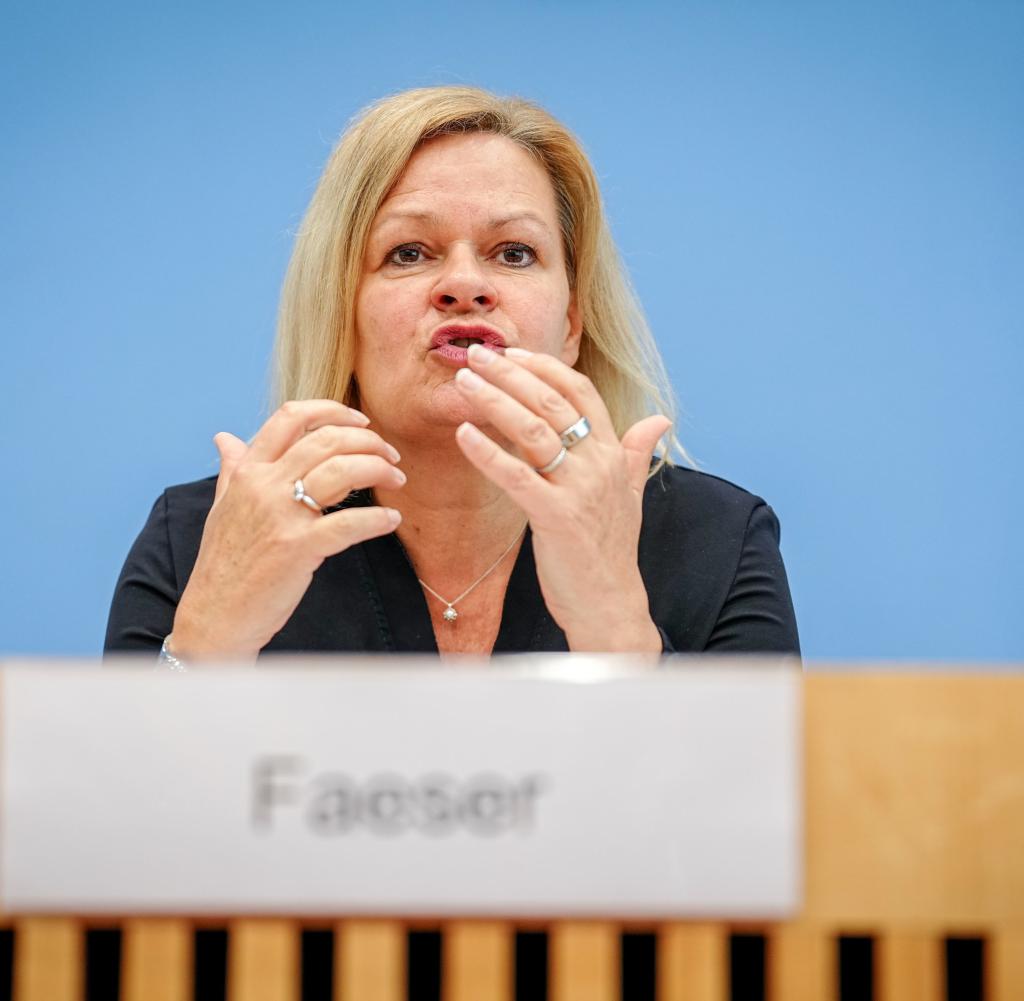In the debate about deporting criminals and dangerous people, Federal Minister of the Interior Nancy Faeser (SPD) is relying on the neighboring countries of Afghanistan and Syria. The aim is to “bring people back” in this way, she said in Deutschlandfunk’s Interview of the Week, which was broadcast in advance on Saturday. “I think that could be a good way and we are working on it.” She did not say which neighboring countries this would involve.
“I want people to be deported to Afghanistan and Syria because it is not acceptable for dangerous people and criminals to stay here after they have served their sentence here and they still pose a threat,” said the Interior Minister. “German interests and security interests simply take priority. And that is why there must be a solution for this.”
Following the violent act by a suspected Islamist from Afghanistan in Mannheim, in which a police officer was killed, the debate about resuming deportations to Afghanistan, at least of people who pose a security risk, has flared up again. So far, repatriations to Afghanistan and Syria have been suspended due to the security situation there. In addition to Faeser, Chancellor Olaf Scholz (SPD) is also determined to deport criminals and dangerous people. The Foreign Office, on the other hand, warns that this would mean recognition of the Taliban regime in Afghanistan.
Despite Scholz’s announcement, the Union does not expect an increase in deportations to Afghanistan. “I really hope that it will happen, but I don’t believe it yet,” CDU General Secretary Carsten Linnemann told broadcaster ntv. The government statement did not say “how it will work.” He himself does not see any insurmountable hurdles. “If I were Scholz, I would get on a plane tomorrow, fly to Sweden and find out how they do it.” Sweden deported several criminals to Afghanistan last year, the CDU politician explained.
Like most countries, Germany does not have diplomatic relations with the radical Islamic Taliban, who rule Afghanistan. Deportations to the country have therefore been suspended since they came to power in 2021. “Nevertheless, there are channels through which you can talk to them,” Linnemann said. It just has to be politically desired.
Bavaria’s Prime Minister Markus Söder (CSU) also expressed doubts about Scholz’s statements on the deportations. These were “only due to the election campaign,” he told broadcaster WELT on Friday evening. “Nothing has happened so far.” Söder stressed: “It is very clear to me: Anyone who commits such an act must be deported.”




